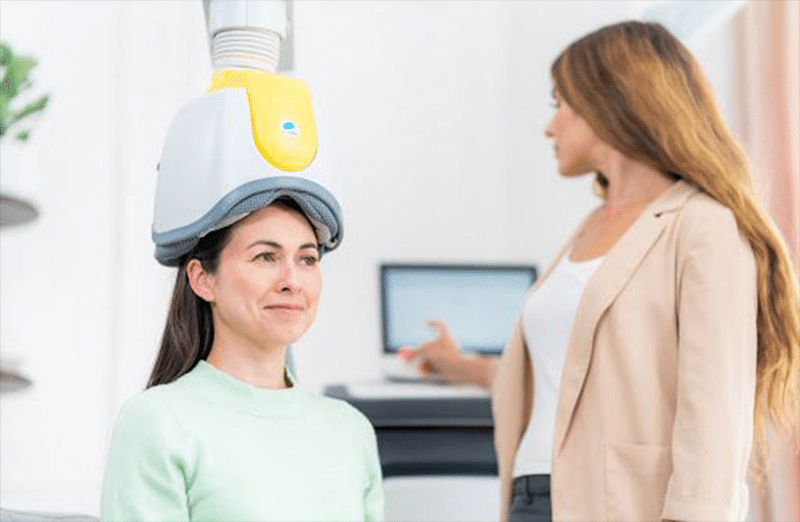Anxiety
What Is Anxiety?
Better understanding anxiety is critical to getting help with anxiety. Anxiety is the mind and body reacting to stress. For example, the stress could be from a dangerous or unfamiliar situation. This reaction may come with a sense of nervousness, great distress, apprehension, or even a sense of panic.
Everyone feels a little bit of anxiety which is useful in helping us stay aware and alert. When anxiety becomes debilitating preventing you from doing normal daily activities it may be the result of an anxiety disorder. Those suffering from anxiety disorders definitely understand how these feelings can prevent one from taking on normal daily activities. This is important for people from the Greater Atlanta as it affects not only your personal home life but almost every aspect.
It’s important to seek help when you notice that anxiety and worries are overwhelming you and preventing you from performing your daily activities. Dr. Singareddy and his team in Greater Atlanta offer several services which are aimed at reducing and managing your anxiety levels.


Do I Have An Anxiety Disorder?
Having some anxiety here and there is something we all experience in life. We might feel anxious when faced with an issue at work, before taking an exam, or before making an important life decision. However, anxiety disorders involve more than short-lived worry or fear.
For a person with an anxiety disorder, the anxiety does not go away and may get worse with time. The symptoms most likely interfere with daily activities such as work, school, home, and their relationships.
Some people may experience anxiety as part of obsessive-compulsive disorder (OCD).
There are various types of anxiety disorders, including generalized anxiety disorder (GAD), panic disorder, and various phobia-related disorders.
Many times those suffering from anxiety will also experience depression.
Generalized Anxiety Disorder
Those with generalized anxiety disorder (GAD) have excessive anxiety or worry, almost every day for at least 6 months. This anxiety or worry may be focused around a number of things such as health, work, social interactions, and everyday routine life circumstances. This fear and anxiety cause significant distress and problems most likely arise in areas of their life, such as social interactions, home life, school, and work.
Generalized Anxiety Disorder Symptoms May Include:
- Difficulty controlling feeling of worry
- Being Irritable, cranky, or easily agitated
- Feeling restless, on-edge, wound-up, or anxious
- Getting easily fatigued or tired
- Lots of tension in the muscles
- Having sleep issues (falling asleep, staying asleep, restlessness)


Panic Disorder
Those who have panic disorder have recurrent unexpected panic attacks. A panic attack is a sudden period of intense dread or fear that initiate quickly and then peak within minutes. Attacks may occur unexpectedly or can be triggered by things such as a feared object or situation.
Panic attacks include at least four of the following symptoms;
- Sweating
- Trembling or shaking
- Chest pain or discomfort
- Cold chills or a hot sensation
- Nausea or abdominal distress
- Fear of dying, losing control, or “going crazy”
- Feeling dizzy, unsteady, light-headed, or faint
- Pounding heart, rapid heart rate, or palpitations
- Sensations of shortness of breath, smothering or choking
- Paresthesia (numbness or tingling sensations in various parts of the body)
- Derealization (feelings of unreality) or depersonalization (being detached from oneself)
- Some experience what is called limited-symptom panic attacks, which are similar to a panic attack but consist of fewer than four symptoms listed above.
Anxiety Treatments And Therapies

Medications
Medications are useful for helping with the symptoms of anxiety disorders and are often prescribed in conjunction with other therapies. Some types of anxiety drugs can be habit-forming and are usually prescribed on a short-term or as-needed basis. Different anxiety disorders require different medication regimens. Some are preventive and some are designed to treat biological causes of the disorder. Antidepressants, particularly selective serotonin reuptake inhibitors (SSRIs), are widely used to treat and prevent a variety of anxiety disorders. Dr. Singareddy and his team have the experience and knowledge to find the right medication and supplement it with other therapies in order to best give you help with anxiety.

TMS
Deep Transcranial Magnetic Stimulation is a non-invasive treatment that uses magnetic pulses to safely and effectively regulate the neural activity of target brain structures. FDA-clearance to treat anxious depression was granted for Brainsway dTMS in 2021. Deep TMS has many advantages over traditional treatment options – no systemic side effects common to medication, no anesthesia or recovery period, and proven efficacy for treatment-resistant patients. Dr. Singareddy’s clinic provides treatment using TMS for those that have comorbid anxiety with their depression so those looking for help with anxiety in the Greater Atlanta can rest assured that they are getting the most innovative anxiety treatments.

Therapy
The overall goal of the various therapeutic approaches to treat anxiety is to help you understand why you feel the way you feel. They also help identify what your triggers are and how you can change your reaction to triggers and stress. Most types of therapy even teach practical techniques to help reframe your negative thinking and change your behaviors. Most of the time therapy is combined with medication or other treatments. This multifacet approach helps provide relief quicker and in a way to provide robust results for those looking for help with anxiety.
Visit Our Resources
Our aim is to transform the way Georgians access clinical services for brain-related disorders, guiding individuals to the most effective solutions. Explore our collection of research articles, video lectures, and resources to enhance cognitive and emotional well-being on your path to understanding and improvement. – Atlanta TMS Clinic
START YOUR JOURNEY
CONTACT US!
Complete this form so we can assist with your mental health journey.

